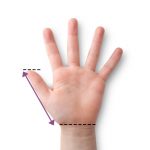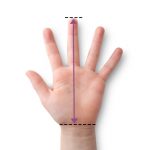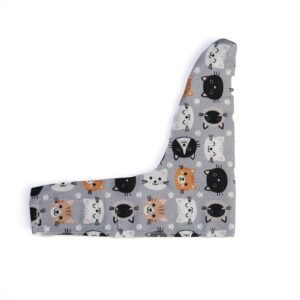Thumb sucking is a natural behaviour that many infants and young children engage in, often as a way to self-soothe, explore their bodies, or provide comfort. It is generally considered a normal part of early childhood development and tends to decrease as children grow older. However, it can sometimes persist beyond the toddler years, raising concerns for parents.
Why do children suck their thumbs?
- Self-soothing: It provides comfort and can help a child calm down when they’re anxious, tired, or upset.
- Exploration: Babies and young children explore their environment through their senses, including touch, and sucking on their thumb may be part of that.
- Comforting habit: It can become a comforting routine, much like a security blanket or stuffed animal.
When does thumb sucking become a concern?
- Age: If thumb sucking continues past the age of 4 or 5, some parents and paediatricians may become concerned. Prolonged thumb sucking can affect the development of teeth and the alignment of the jaw.
- Dental Issues: Persistent thumb sucking can lead to dental problems like an open bite (where the front teeth don’t come together), misalignment of the teeth, and other oral health issues.
- Speech problems: In some cases, prolonged thumb sucking can contribute to speech or swallowing difficulties.
Tips to help a child stop thumb sucking:
- Positive reinforcement: Praise and reward the child for not sucking their thumb or for reducing the behaviour.
- Provide comfort: Offer alternatives for self-soothing, such as a stuffed animal or blanket.
- Gentle reminders: As the child gets older, gently remind them about not sucking their thumb, especially in public or at times when they might be doing it unconsciously.
- Professional help: In cases of persistent thumb sucking that affect dental or speech development, it might be helpful to consult a paediatrician or a dentist for advice on how to address the behaviour.
Most children naturally stop thumb sucking on their own as they grow older, but if you’re concerned about the habit, it’s always good to talk to a healthcare provider for personalised advice.
Thumb and finger sucking habit?
Help your child prevent the problems that prolonged and aggressive thumb and finger sucking can cause Buy NowStopping thumb sucking can be challenging for both children and parents, especially if it’s a deeply ingrained habit. However, with patience, consistency, and a supportive approach, it is usually possible to help a child stop. Here are some effective strategies that might help:
- Positive Reinforcement
- Praise and rewards: Encourage your child by offering praise or rewards for not sucking their thumb. You could set up a reward chart where they earn a sticker or token for every day they don’t suck their thumb, and after a certain number of stickers, they get a reward.
- Focus on effort: Celebrate small victories, like reducing the time spent sucking their thumb or being able to stop during certain activities (like at school or playdates).
- Make Them Aware
- Gentle reminders: Some children suck their thumb without realizing it, especially if they are bored, tired, or stressed. Gentle reminders can help raise awareness. You could say, “Remember, no thumb sucking,” in a calm and non-judgmental tone.
- Use a band-aid or glove: You can try placing a band-aid or a mitten on their thumb as a visual and tactile reminder not to suck it. For older children, a soft fabric thumb guard can be a positive way to discourage the habit.
- Address the Root Cause
- Comfort and emotional support: If thumb sucking is a self-soothing mechanism, try to identify any stress or anxiety triggers. Comforting your child with physical affection (hugs, cuddles) or providing a calming bedtime routine can help reduce the need to suck their thumb.
- Offer an alternative soothing object: Provide a comfort item like a stuffed animal, blanket, or special toy that your child can hold when they feel the urge to suck their thumb.
- Teach relaxation techniques: Older children might benefit from learning how to calm themselves without thumb sucking. Breathing exercises, mindfulness, or listening to music can be helpful tools.
- Make It Less Appealing
- Use a bitter-tasting nail polish: There are special, non-toxic bitter-tasting nail polishes designed to discourage thumb sucking by making the thumb less appealing. This is often more effective for older children who are capable of understanding the reason behind the taste.
- Create a “thumb” chart: You can draw a simple chart with a picture of a thumb, and each time they go without thumb sucking for a period of time, they can colour in part of the thumb. This helps make the process feel like a fun challenge and gives them a sense of accomplishment.
- Set Clear Expectations and Be Consistent
- Discuss the habit openly: Talk with your child about why it’s important to stop thumb sucking, especially if they are old enough to understand the reasons (like dental health or social situations). Make sure they understand that you’re there to help.
- Set a goal and stick with it: Let your child know that they are working toward a specific goal, such as stopping thumb sucking at night, during school, or at play. Be consistent with your reminders and rewards.
- Gradual Weaning Approach
- Gradually reduce the behaviour: Instead of expecting the child to stop all at once, you might want to gradually reduce thumb sucking. For example, start by encouraging them to stop thumb sucking during the daytime, and once they master that, focus on night-time.
- Pick a specific situation: Sometimes, children are more likely to suck their thumb in certain situations—like when they’re watching TV or feeling anxious. Start by focusing on breaking the habit during those moments.
- Create a New Routine for Bedtime
- Many children suck their thumbs to help them fall asleep. Establishing a calming bedtime routine can reduce reliance on thumb sucking. This might include:
- Reading a favourite story
- Listening to calming music or lullabies
- Offering a soft comfort object, like a stuffed animal or blanket
- Talking about their day or their feelings to help them wind down
- Use a Thumb Guard or Glove
- Thumb guards or glove are devices designed to discourage thumb sucking by making it physically uncomfortable or inconvenient, or can act as a reminder. These can be purchased at stores or online. It’s essential to use the fun ones, and only after discussing it with your child in a positive way, so they don’t feel punished.
- Dental Consultation
- Visit the dentist: If your child is old enough (typically over age 4 or 5) and their thumb sucking is affecting their teeth, a paediatric dentist can offer guidance. In some cases, they may recommend a simple orthodontic appliance or device to help discourage the habit.
- Discuss dental consequences: For older children, explaining how thumb sucking can affect their teeth (e.g., causing misalignment, an overbite, or speech issues) might encourage them to quit.
- Stay Patient and Avoid Punishment
- Patience is key: Stopping thumb sucking can take time. Be patient and supportive, recognising that it’s a process that requires both emotional support and practical strategies.
- Avoid punishment or shaming: Punishing or shaming a child for thumb sucking can create anxiety or make them feel bad about the habit. This can increase stress and may actually make the problem worse. Focus on positive reinforcement and encouragement instead.
When to Seek Professional Help
If your child is unable to stop thumb sucking despite your best efforts, or if the behaviour is affecting their teeth, speech, or social development, it may be helpful to seek advice from a paediatrician, dentist, or child psychologist. They can provide tailored strategies, monitor progress, and address any underlying emotional issues.
Ultimately, with a supportive and understanding approach, most children can stop thumb sucking over time.
Please note all comments will need to be approved before appearing on this page. Please respect others when posting.


































Comments